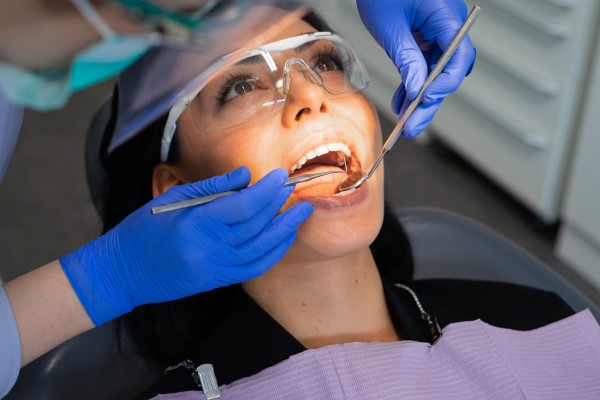Avoid a Dental Filling by Preventing Tooth Decay

A dental filling is the standard way to repair teeth that have been damaged by decay. Tooth decay is the result of acids in the mouth eating away at teeth. It starts with the formation of small holes called cavities and it can destroy both the teeth and gums.
Tooth decay can also lead to an infection if it reaches the pulp chamber. The pulp chamber houses the tooth's nerve and blood vessels. The area is sealed off in an inner layer of the tooth, so it is normally protected from the bacteria in the mouth. When tooth decay opens up the pulp chamber, infection is inevitable if the tooth is left untreated. Thankfully, a dental filling can be placed, which seals the chamber and revitalizes the tooth.
Preventing the need for a dental filling
Those who take good care of their mouth and avoid things that promote tooth decay will not find themselves needing a dental filling. There are a few things that help avoid the need for a dental filling restoration.
1. Brush at least two times daily
Brushing is the most important thing a person can do when it comes to keeping their teeth free of decay. Dentists recommend brushing at least two times a day to limit plaque and bacteria build up in the mouth. Brushing right before going to bed provides extra benefits since saliva production goes down during sleep. Saliva helps to protect teeth by washing away plaque and bacteria. When it comes to fighting tooth decay and avoiding the need for a dental filling, a toothpaste that contains fluoride works best.
2. Floss daily
Another way to prevent the need for a dental filling is to floss regularly. Flossing cleans the areas that are too tight to be reached by a toothbrush. These areas are great hiding spots for the bacteria that produce acids that damage teeth. Flossing helps to keep these areas plaque-free and it also freshens a person's breath.
3. Use mouthwash
Mouthwash does not have to be part of a person's everyday oral care routine, but it does provide additional protection. Therapeutic mouthwashes work best since these are infused with active ingredients that can help to fight against tooth decay, thus preventing a dental filling need.
4. Limit sugar
Oral bacteria feast on the sugars in food to create acids that damage teeth. The more sugar a person consumes, the more vulnerable their teeth are to tooth decay. A simple trick that can help to reduce damage is to rinse the mouth with water after consuming things that contain sugar.
5. Drink lots of water
Water helps to neutralize acids in the mouth and it washes away bacteria and the food particles they consume. Tap water in most developed countries is fluoridated, so it also helps to re-mineralize teeth, which is another prevention tool for avoiding a dental filling procedure.
6. Visit a dentist twice a year
Dentists perform teeth cleanings during routine visits. The procedure removes tartar from teeth surfaces, protecting them against tooth decay. Oral examinations are performed during these visits, as well, so developing issues are noticed early on, which may be helpful in preventing dental fillings.
Learn more about preventing tooth decay
Call or visit our Stoughton practice to learn more about treatments we can perform to protect your teeth against tooth decay.
Request an appointment here: https://dentistryonpark.com or call Dentistry on Park, LLC at (781) 443-8131 for an appointment in our Stoughton office.
Check out what others are saying about our services on Yelp: Read our Yelp reviews.
Recent Posts
Invisalign® is an increasingly popular alternative to traditional metal braces. Many are attracted to its benefits, such as the ability to align their teeth discreetly, comfortable wear, quick treatment times, and the ability to remove the appliance. However, before you settle on this treatment, we need to ensure you are approved for this type of…
Maintaining optimal oral health involves more than daily brushing and flossing. Deep cleaning plays a critical role in preserving gum health and preventing long-term complications such as periodontal disease. This advanced dental procedure goes beyond routine cleaning to target bacteria and plaque beneath the gumline, helping patients maintain a healthy mouth and a confident smile.Deep…
The journey toward a straighter smile is exciting but comes with a crucial decision: Invisalign® or traditional braces? Both options have advantages, and understanding their differences can help you make an informed decision about your teeth-straightening treatment goals. It is not only about achieving a straighter smile but also about finding the path that best…
Eating with Invisalign ® aligners will be slightly different from your usual routine, but it is entirely manageable with minor adjustments. We often receive questions about eating with Invisalign, so we have answered the most common ones in this review to help you navigate this aspect of your orthodontic treatment. Understanding what patients can and…


